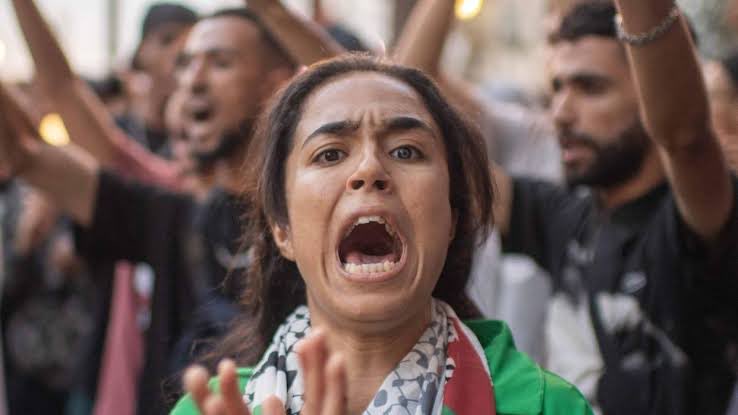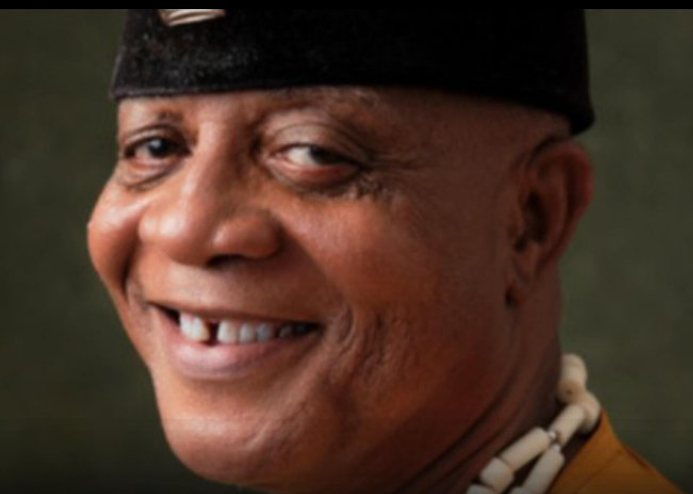
“The New Sheriff Has Spoken”: Sonia Ighalo Defends Edo Governor's Warning to Peter Obi Amid Heated Backlash

In a fiery social media post that has ignited widespread reaction online, Sonia Ighalo—the estranged wife of football star Odion Ighalo—has come out swinging in defense of the Governor of Edo State over his controversial remarks aimed at Labour Party’s presidential candidate, Peter Obi. The Governor had earlier made headlines when he reportedly warned Peter Obi not to step foot in Edo State without explicit permission from the state government, citing “security concerns” and the “ongoing crisis” in the state. That statement, as expected, sent political observers, opposition supporters, and social commentators into a digital frenzy, but Sonia Ighalo wasn’t having it.
Taking to her X (formerly Twitter) account under the handle desuwa30, Sonia addressed the uproar with pointed words and a tone dripping with disapproval for what she described as selective outrage. “You all criticised, insulted, and booed Buhari even after his passing,” she wrote. “You express wishes for the demise of a sitting president daily and have taken various actions to undermine his administration. However, just a piece of advice aimed at your preferred candidate for his own safety amid the ongoing crisis in Edo State has you all convulsing.”
Her message was as much a critique of the critics as it was a defiant show of solidarity with the Governor, who has been called everything from a dictator to a political bully in the last 48 hours. The controversy began when the Governor, during an address to state stakeholders, voiced concerns over Peter Obi’s alleged plans to visit Edo without consulting the state apparatus. In his words, “You do not just walk into a state already dealing with unrest without coordination—it’s reckless and dangerous.”
That statement alone has been enough to raise the political temperature in a nation already boiling with tension ahead of the next electoral cycle. Supporters of the Labour Party have accused the Governor of being authoritarian, tribalistic, and insecure, suggesting that the warning was less about safety and more about political insecurity and fear of Peter Obi’s rising popularity, especially among Nigerian youths.
But Sonia Ighalo seems to be among those who see it differently. She continued in her post, “Edo is recognised as one of the most welcoming ethnic groups in Nigeria, and we will not tolerate any kind of benuying or oppendn [sic]. One Nigeria. Shalom.” Though a few of the words appeared to be typographical errors or autocorrect mishaps, the message was clear—her loyalty lies with the governor’s stance and she believes the criticism has more to do with political bias than any real sense of justice or democracy.
That sentiment, however, hasn’t stopped the criticism from pouring in. Political analysts are split on the matter. Some argue that a sitting governor has the right—and responsibility—to maintain peace and order in his state, especially during volatile times. Others contend that such a warning sets a dangerous precedent, essentially turning Nigeria’s 36 states into independent territories with gatekeeping governors.
For Peter Obi, the man at the center of the firestorm, the silence has been deafening. As of the time of this report, he has made no official comment about the Governor’s statement or Sonia Ighalo’s defense of it. But insiders say the Labour Party campaign team is monitoring the situation closely and weighing their options.
Meanwhile, the online community has been anything but quiet. The post by Sonia has racked up thousands of views and reactions, with users both commending her bravery and questioning her intentions. “Why is Sonia acting like a political spokesperson now?” asked one user. Another replied, “It’s refreshing to see someone stand up against hypocrisy. If this was Tinubu or Atiku being warned, nobody would have cared.”
Indeed, the double standard argument is one that keeps surfacing, and Sonia seems to have tapped into that frustration. Her declaration that “the new sheriff in town has spoken” reads like a rallying cry—a line drawn in the sand as Nigeria inches closer to what many expect to be another fiercely contested election season.
There is also speculation that this sudden political commentary from Sonia is part of a larger rebranding effort. Having been largely out of the public eye following her split from Odion Ighalo, she’s been gradually returning to the spotlight through bolder posts, social commentary, and a revamped online persona. Whether this is a genuine expression of her political stance or a calculated move to re-enter public discourse, one thing is clear: she has people talking.
Back in Edo, the atmosphere remains tense. Civil society groups have called for calm and dialogue, while local youth movements have expressed concern over what they perceive as a shrinking space for political engagement and opposition voices. Some have even planned peaceful protests to assert that no part of Nigeria should be off-limits to any citizen, regardless of their political affiliation.
As for the Governor, his office has since issued a press release reaffirming his commitment to security and unity, while also stating that “no individual, regardless of their political weight, is above state protocol.” A firm stance, yet diplomatically worded—perhaps in an effort to douse the growing fire without appearing to backtrack.
In the grand scheme of Nigeria’s often turbulent political theater, this incident might be just another momentary flare-up. But it also serves as a sobering reminder of how quickly political sentiments can polarize the populace, even drawing in unexpected voices like that of Sonia Ighalo. What started as a Governor’s warning has now evolved into a national conversation about power, access, and freedom of movement within a democratic federation.
The coming days will reveal whether this controversy fizzles out or becomes a defining episode in the lead-up to Nigeria’s next general elections. One thing is certain, though: the “new sheriff” may have spoken, but Nigerians—on both sides of the argument—are far from done talking.


